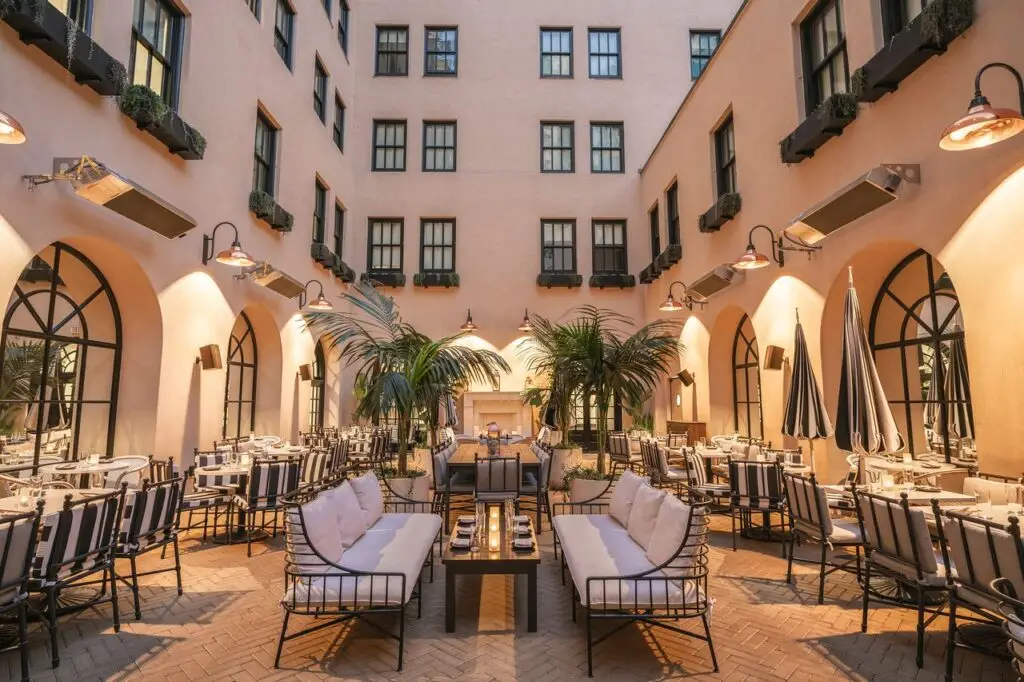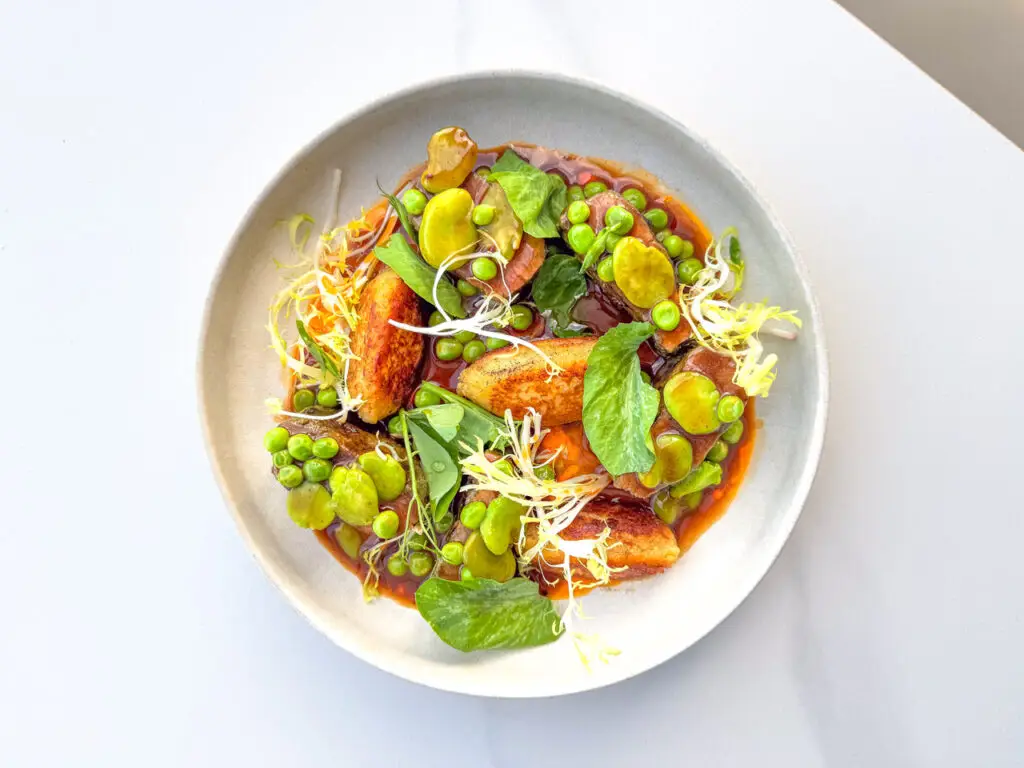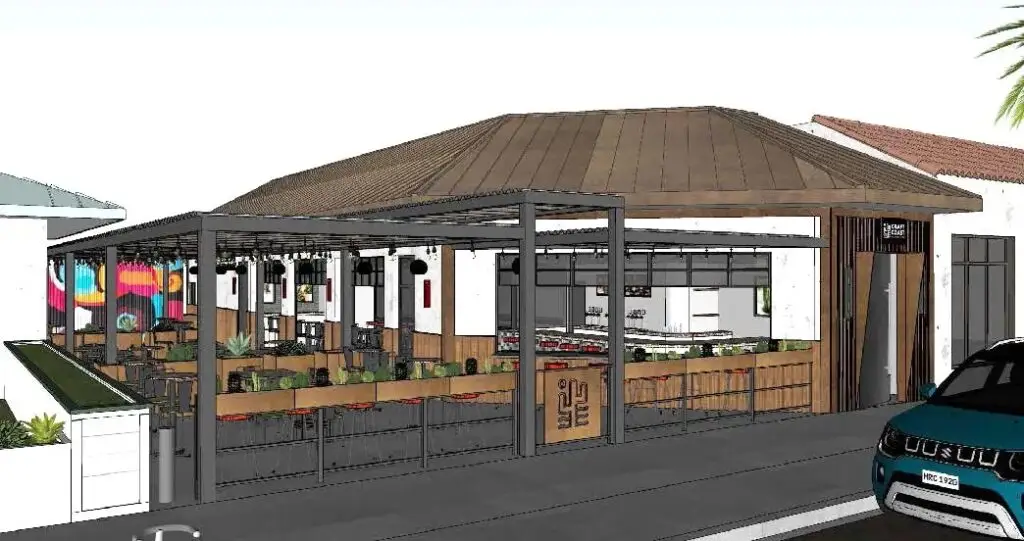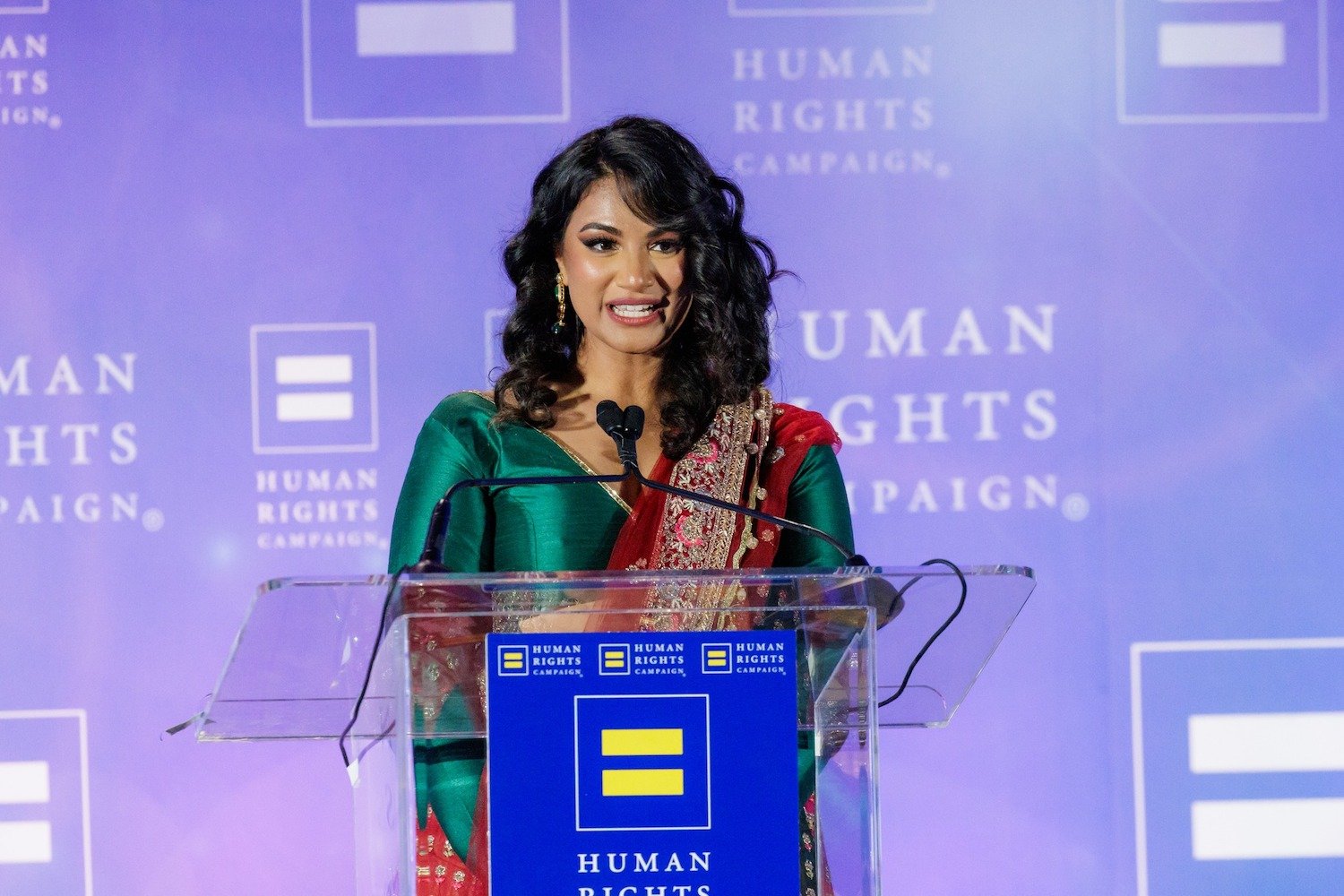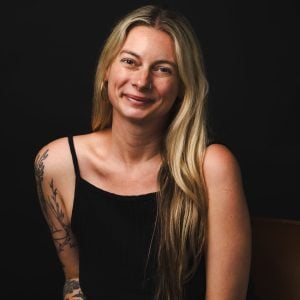For Hooriya Hussain, volunteering has always been more than just a weekend activity—it’s a fundamental part of her identity. Hussain is a volunteer leader for the Human Rights Campaign (HRC) and sits on the organization’s National Board of Governors, but her journey is shaped by her upbringing in Qatar, her identity as a South Asian Muslim immigrant, and her passion for human rights.
From her work advocating for equitable education in underserved communities to her involvement in grassroots activism for LGBTQ+ rights, Hussain’s story is one of resilience, empathy, and an unwavering commitment to making a difference.
Hussain was born and raised in Qatar, a country she describes as having “vast economic divides between the wealthy locals and the many migrant workers who support the booming economy.”
“I grew up in the Middle East in a largely Indian private school,” she says, explaining that most private schools were typically Arab and wealthy. Her school, with over 10,000 students, was a great equalizer—a place where all wore uniforms, hiding any wealth or relative lack thereof, and focused on education regardless of their backgrounds. For Hussain, school represented stability and opportunity, two things not easily afforded to many in the migrant communities around her.
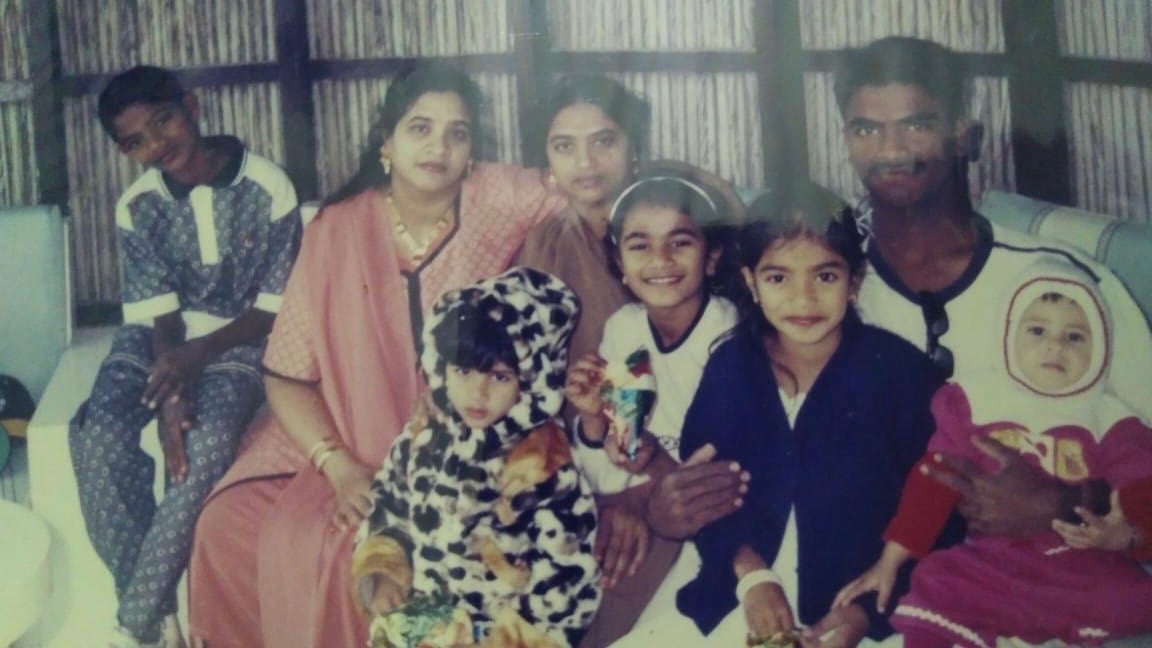
Hoori in the center wearing a white headband
“All I wanted to do was go to school,” she recalls, emphasizing how education was a cherished privilege in her family. Though they struggled financially, with her family relying on aid to send all five children to the same school, Hussain’s experience instilled in her a belief in the transformative power of education and the fundamental right to receive a good one.
Hussain explains that her family experience, one of hardship and resilience, undergirds her volunteer lifestyle. She says that as immigrants in a country where visas are controlled by work permits, they navigated life with the constant fear of deportation, as her father’s jobs in the military ebbed and flowed, and he was frequently unemployed. She adds that it was a “huge opportunity” for her father to have immigrated to Qatar, and that it changed her life, regardless of the difficulties her family faced once there
“We never threw away boxes,” Hussain remembers, explaining how her family always had to be ready to pack up and leave at a moment’s notice. Growing up in an environment with a fundamental lack of security stuck with her. She’s impassioned to fight for others to have access to the opportunities she had to fight so hard to secure. Education was the core of that vision, and it became a mission in her budding career.
As she left school, Hussain started working for global nonprofits focused on education and humanitarian aid in South Asia and the Middle East. She built schools and implemented community programs in countries like Indonesia and Cambodia and says the work was deeply personal. “For me, it just felt like this is what I needed when I was a kid,” she says. The faces she saw were familiar—children wearing the same school uniforms she once wore and living in conditions that mirrored her experiences. It wasn’t just work for her; it became her mission.
But as Hussain’s professional work took her around the world, her heart stayed close to the migrant worker communities in Qatar, where she grew up. Seeing firsthand the inequities faced by these communities—who lived in labor camps and were often stripped of their fundamental human rights—she got into underground activism, volunteering indirectly for Amnesty International and focusing on supporting migrant workers. “I saw myself as part of those people in those camps, and that’s why I felt this urge that something had to be done,” she says. Her efforts included organizing food drives and finding ways to offer support, even when it meant operating in the shadows due to the sensitive political climate in Qatar.
This advocacy work came with risks. Whistleblowers within Hussain’s network started losing their work permits and faced legal repercussions for speaking out. Eventually, she felt she had to stop working underground and moved to San Diego in 2016 through a work transfer at a biotech marketing company.
She describes the culture shock of moving from what she describes as family—and community-oriented Middle Eastern cultures to fast-paced Southern California, remembering a sense that though people were friendly and well-meaning, people in the United States can be much more individualistic. She wasn’t catching the vibrant discussions about social issues and the sense of collective responsibility she had been used to in her communities back in Qatar.
To add to the disillusionment, her work visa was rejected during a renewal process in 2018, which she notes happened during a particularly contentious time in immigration history during President Trump’s administration, a climate that persists today. Hussain was facing deportation—a situation she describes as familiar from childhood, so she knew what to do. However, she felt her life was unraveling while her work status was on hold and her future uncertain.
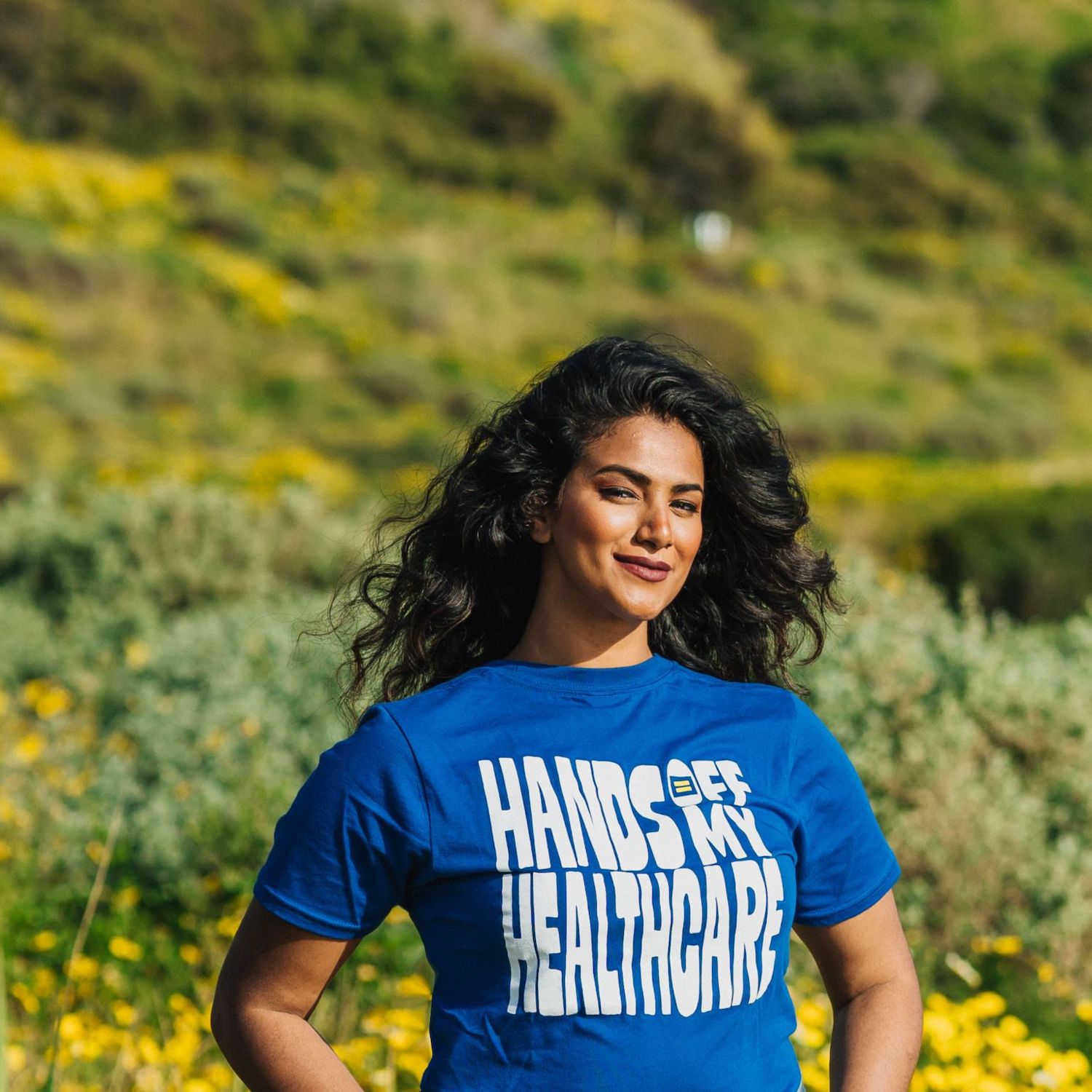
Hussain says that, during that time, a friend from the LGBTQ+ community encouraged her to volunteer for the Human Rights Campaign’s annual gala in San Diego. “All I wanted to do was just feel like I was doing something,” she says, recalling how volunteering became a lifeline. What started as one night of pro bono event crewing quickly evolved into a deeper involvement.
“I got in immediately,” she says, taking on responsibilities within HRC’s steering committee and eventually becoming a digital communications leader. She says the work gave her a renewed sense of purpose and reconnected her to her activist and volunteer roots.
Hussain’s roles at HRC are multifaceted. She leads digital communications for the San Diego chapter, serves on the National Board of Governors, and is a leader within the organization’s Asian, Native Hawaiian, and Pacific Islander (AANHPI) affinity group.
Her work involves everything from year-round organizing for volunteers and membership outreach to supporting grassroots LGBTQ+ organizations with funding and visibility. For Hussain, it’s about creating a more inclusive movement that centers the voices of those traditionally marginalized—especially within the LGBTQ+ advocacy space itself, which she contends can often be “very white spaces.”
“It takes one to know one,” she emphasizes, underscoring the importance of having diverse leaders who understand the nuances of intersectional identities.
Navigating the complexities of being a queer, South Asian, Muslim immigrant has given Hussain a unique perspective on advocacy, she thinks. She recognizes the challenges faced by those who straddle multiple marginalized identities, particularly in cultures where being queer is not widely accepted or even safe.
PARTNER CONTENT
For Hussain, San Diego’s diversity—often hidden by geographic and social divides—offers challenges and opportunities for activism and impact. She dedicates herself to bridging these divides by elevating underrepresented voices and driving change at the local level through organizing campaigns for unhoused LGBTQ+ youth or supporting pro-equality candidates in political office. “Advocacy is more than just speaking up—it’s about systemic change and building communities that uplift one another,” she says.
Hussain’s humanist spirit has taken her from underground activism in Qatar to her leadership role at HRC San Diego, a journey that taught her the reality of intersectionality, the necessity of community support, and the enduring belief that change is possible even in the most materially and politically tense conditions. For now, San Diego has become where she continues to fight for that change, helping to bring the voices of all marginalized people out from the shadows.
